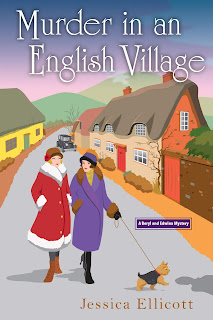Long, slow summer days leave plenty of time for reading, and here is a sampling of the books that crowd my real and virtual bookshelves at present. Most of these will give rise to New Books Network interviews, although Dunnett may be considered research, and I’ll be featuring Andrea Penrose’s latest here on the blog in a few weeks. Some of these I’ve already finished, but the interviews are still in process; others will take longer. And of course, there are other titles I could list—not least the fifty-seven cases of the cat detective Max and his good friends Dooley, Harriet, and Brutus. So far, I’ve read just four of those, but they are like delightful palate cleansers between heftier reads. And what do summer days need more than reading that evokes love and laughter?
As you can see from this lineup, I read a lot of recent historical fiction—hard to avoid when one hosts a podcast called New Books in Historical Fiction. But once in a while, I have time for books that have, shall we say, had time to ripen on the vine. Having just re-read Dunnett’s The Ringed Castle—the fifth of her six-part Lymond Chronicles, set in sixteenth-century Russia and therefore contemporary with my own novels—I remembered that she had also written another series about Lymond’s merchant ancestor in the late fifteenth century.
In this second installment of the House of Niccolò series, Nicholas de Fleury travels to Trebizond and Caffa, near the khanate of Crimea. Dunnett was unsurpassed in the art of historical detail and her ability to create a sense of place; her research was pretty good too. I’m hoping to pick up tips for a later Songs of Steppe & Forest novel that will feature an Italian merchant as its hero. And if I like this one, I will also read book 6, Caprice and Rondo, where Nicholas visits Danzig and has to choose whether to risk becoming embroiled with the Tatars of Ukraine and Crimea.
I love King’s Mary Russell novels, so having the chance to talk with her again about this new stand-alone was an instant draw. And I’m so glad it worked out, because the book is a joy. Stay tuned for news of an interview in September, when the novel releases to the public, but here is a snippet of what to expect.
Inspector Raquel Liang of the San Francisco Police Department Cold Cases Unit has reached a crossroads in her career as the SFPD’s psychological investigator. When news comes of old bones found under a concrete slab at the spiffy Gardener Estate in San Mateo County, Raquel is assigned to find out what happened. Interspersed with Raquel’s search for information, King reveals the events leading up to the murder in 1979, when—for reasons explained in the novel—the now pristine Gardener Estate hosted a hippie commune devoted to organic gardening, free love, and a steady supply of mind-altering drugs. As we move back and forth between past and present, the complex story of one exceedingly troubled family slowly emerges, and a series of twists keep the reader riveted to the page.
Ellen Lohuis, Echoes of Home
(Black Peony Press, 2022)
Sequel to The Horse Master’s Daughter and A Pilgrim’s Heart, also released in 2022, this novel follows the series heroine, Nordun, north from late thirteenth-century Tibet to the lands ruled by the Mongols. She travels to support her lover, Karma, who is attempting to discover the circumstances that led to his being abandoned as a child.
Nordun has spent much of her life training to become a Buddhist nun, and she is still learning to accept that her spiritual journey may require her to adopt a different path—as the heir of her father’s horse farm and as Karma’s wife. Here the obvious draw for me is the Mongol element, since these are the ancestors of my Tatar characters. But the series itself is fascinating, with lots of insights into Buddhist philosophy, as well as the care and raising of horses. I will be hosting an interview with Elles Lohuis sometime in the fall.
Bárbara Mujica, Miss del Río (Graydon House, 2022)
This novel follows the career of Dolores del Río, one of the first Mexican actresses to become a star in both Hollywood and her home country. Add to that a dramatic tale of the fictional María Amparo (Mara)—Dolores’s hairdresser, confidante, and wry chronicler—and you have a novel that breaks new ground in interesting ways. Mujica follows the lives of both women as they interact, overlap, and at times separate throughout Dolores’s career. But Mara has a story of her own, a tale even more compelling than Dolores’s, and it pulls us along to a dramatic finale and a satisfying conclusion. My interview with Mujica will post in early October.
Andrea Penrose, Murder at the Serpentine Bridge (Kensington Books, 2022)
It’s no secret that I’m a huge fan of Andrea Penrose’s Wrexford and Sloane series. I discovered them by chance through an Amazon recommendation and a well-timed promotion, and I’ve never looked back. I interviewed the author last year when Murder at the Botanic Gardens came out, and I would gladly interview her again—except that there’s only so much you can say about a mystery series without giving away spoilers. So instead I’ll post an excerpt and short summary here in a couple of weeks when the book releases.










